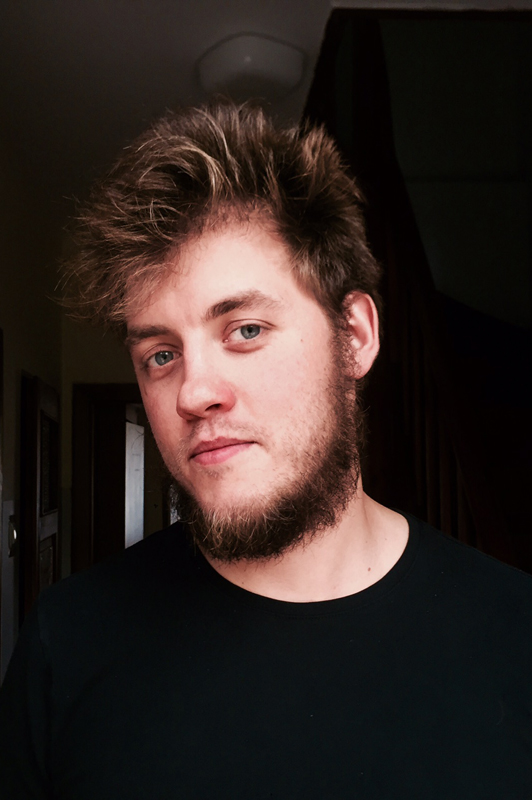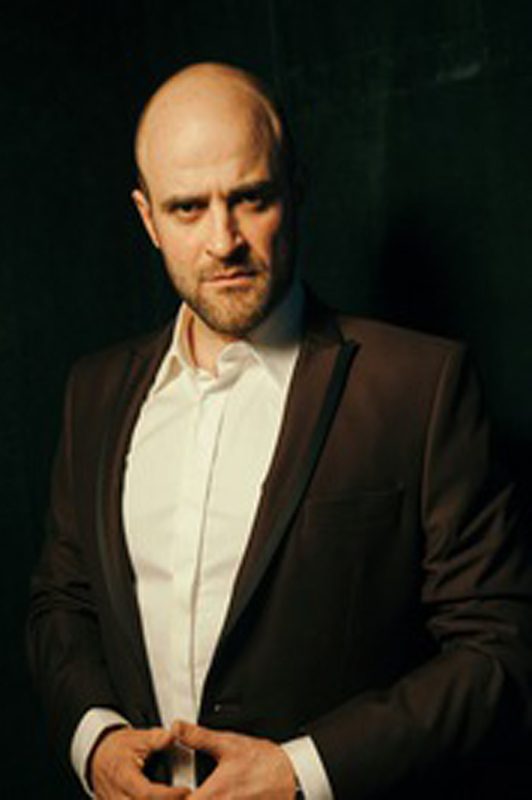When he arrived from China, Ding Yi spent a year studying Russian before beginning a Master’s under V. M. Filshtinsky. During the entrance exams, Yi recited Esenin’s Black Man and Chekhov’s Vanka by heart and was immediately given the role of Razumikhin in the Lensovet Theatre’s production of Crime and Punishment. After graduating with honors, Yi became an instructor at the Meishi Film Academy of Chongqing University in China and played the lead in the famous director Chen Dalian’s production of Macbeth. This summer Yi intends to return to RGISI for another degree in order to continue his research on the phenomenon of the acting art.
“While a university student in China I found out about the Stanislavsky system. But it became clear to me that I needed more knowledge than I could receive there, and so I decided to study in Russia. I am a third-generation actor: in my family the traditions of the Beijing opera is passed down from generation to generation. These had an influence on me as well, but I wanted to do something new.
“There was much that was new to me during my studies in St. Petersburg. For example, the need to do a zachin before each lesson seems to me a very good way of getting in the creative mindset. It’s unusual that all four or even five years must be spent training under a single master. The master has a colossal influence on his students, and it’s important that they then be able to find their own voice.
“I was surprised to see how productions of the same play in Russia could be so different from each other, and how willing audiences are to accept such diverse forms of theatre. I was particularly astonished by St. Petersburg’s White Nights – I had no idea that days could be so long! But I also enjoyed going for walks during the golden autumn – it evoked a contemplative mood.”
Roland Bonnin came to Russia to study the Stanislavsky method and simply to be in a country that people in his native France knew so little about. A graduate of A. A. Praudin’s studio at the Institute, he is today very much in demand as a director. Among his productions are Sartre’s No Exit shown on the off-program of the Avignon Festival, Moliere’s Don Juan at the U Mosta Theatre in Perm, Asya Voloshina’s Constant Prince in the Perm Puppet Theatre and Shakespeare’s Two Gentlemen of Verona in the Kirov Theatre on Spasskaya. Roland also served as the inspiration for one of the characters in Asya Voloshina’s play Man from Fish.
“My parents thought that I was setting myself up for a catastrophe, but when I arrived in Russia I was pleasantly surprised. I grew more mature thanks to my life here, and I still consider it the best decision I’ve ever made in my life, despite the fact that there have been many difficult moments.
“What shocked me? Procrastination. Before I arrived I didn’t know what that was. On the second day of my studies my Russian teacher explained it to me as a joke. But it turned out to be true. In France and in the west in general we try to plan things in advance and actors learn their lines before rehearsals start, whereas in Russia they learn them a week before the premiere. On the other hand, Russians can work miracles when you least expect it.
“I should point out that the atmosphere in the country has changed a lot since 2013. It’s much more tense and there’s more pessimism and aggression. It’s sad to see because the Russia that I found when I arrived truly felt like a country full of possibilities. But I live and work in Russia because I like the role that theatre plays in Russian society; theatre is an important social institution, every premiere is an event and actors and directors are respected. In France, if they’re not really famous then people consider them clowns or social parasites. And I now also realize that I’ve become too ‘Russian’ for French audiences.”







